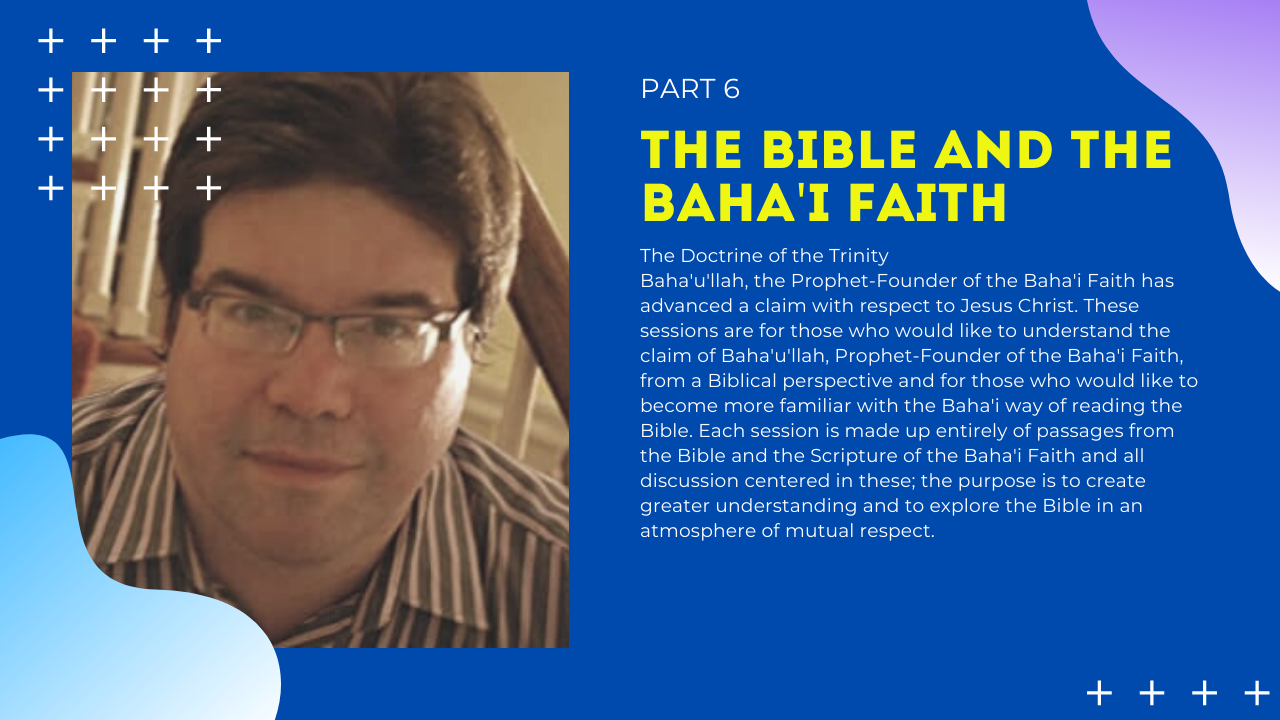The confluence of belief systems often illuminates profound insights regarding the spiritual undertakings and aspirations of humanity. One such synthesis occurs when examining the Bahá’í Faith alongside traditional Christian doctrines, particularly the intricate concept of the Trinity. This exploration endeavors to delineate common ground while illuminating key theological differences, ultimately offering a nuanced perspective that fosters a deeper understanding of both traditions.
To commence this discourse, it is essential to grasp the foundational principles of the Bahá’í Faith. Central to its teachings is the belief in the oneness of God, the unity of humankind, and the progressive revelation of divine truth. Bahá’ís posit that throughout history, God has revealed His will through a succession of Manifestations, including Moses, Jesus, Muhammad, and Bahá’u’lláh, the founder of the Bahá’í Faith. This schema espouses a holistic and egalitarian view, wherein spiritual truths evolve but remain fundamentally cohesive and complementary.
In contrast, the doctrine of the Trinity, as embraced by mainstream Christianity, articulates a triune conception of God: the Father, the Son, and the Holy Spirit, each being distinct yet coeternal and consubstantial. This teaching underscores a deep relational dynamic within the divine essence, suggestive of an intimate interconnection that fuels not only theological understanding but also personal relationship with the Divine. The implications of this framework shape much of Christian worship, ritual, and understanding of salvation history.
Despite the apparent divergence in conceptualization of the divine, intriguing parallels emerge upon further examination. Both the Bahá’í Faith and Christianity assert the supremacy of God and the importance of fostering a transformative relationship between the divine and humanity. Additionally, both traditions emphasize love—love for God, love for fellow beings—as the primordial directive guiding human behavior. This ethical imperative nurtures a visceral yearning for unity and reconciliation among disparate societies.
However, examining the distinction pertaining to the nature of Jesus Christ serves to elucidate deeper doctrinal divergences. In Christianity, Jesus’ divinity is paramount; He embodies God’s very essence—hence the phrase “the Word became flesh.” This incarnational theology profoundly informs Christian worship and faith praxis, emphasizing Jesus as both Savior and a direct conduit to divine grace.
Conversely, Bahá’í teachings reverence Jesus as a Manifestation of God, a pivotal figure in the lineage of divine messengers who have come to impart wisdom and guidance to humanity. While Bahá’ís celebrate His qualities and teachings, they do not attribute the same divine status as outlined in Trinitarian doctrine. Instead, they view Him as part of a broader continuum of prophetic revelation, one who has contributed significantly to humanity’s spiritual evolution but is not the sole focal point of salvation.
Another point of divergence lies in the role of the Holy Spirit. Within Christian theology, the Holy Spirit plays a vital role in engendering faith, empowering believers, and facilitating the personal experience of God’s presence. This aspect is critical for understanding Christian sacramental life and the transformative nature of divine grace. Believers often emphasize the Holy Spirit as their guide, comforter, and educator in faith.
In Bahá’í understanding, the Holy Spirit is interpreted as the divine influence or energy that inspires and elevates humanity through the teachings of the Manifestations. While it is recognized as an essential force facilitating spiritual awakening, it is not considered a distinct personhood but rather an emanation of God’s will. This interpretation encourages believers to engage with the spiritual essence that empowers moral actions and social justice, recalibrating the focus from individualistic salvation to collective upliftment.
The exploration extends to eschatological views, where traditional Christianity espouses the belief in the second coming of Christ and the eventual establishment of God’s kingdom. Bahá’í teachings offer a different perspective, positing that the awaited fulfillment of divine promises occurs through the gradual evolution and unification of humanity rather than a singular apocalyptic event. Bahá’ís interpret the signs of the times — the global material and spiritual transformations occurring around the world — as evidence of the divine plan unfolding according to God’s wisdom.
For many, these dialogues foster a sense of curiosity and invite a paradigm shift. Rather than viewing these belief systems through a lens of antagonism, an integrative approach enhances understanding, respect, and appreciation for diverse spiritual journeys. Engaging with these teachings opens pathways toward constructive dialogue, which can contribute to peace-building efforts in a tumultuous global context.
In conclusion, the encounter between Bahá’í insights and traditional church doctrines, especially the doctrine of the Trinity, provides fertile ground for profound reflection and intellectual inquiry. Acknowledging both the shared values and differences enriches the discourse, suggesting that humanity’s quest for spiritual understanding is inherently relational and evolving. Embracing these multiple narratives might catalyze not merely a deeper appreciation of faith but an aspiration toward a unified, harmonious existence rooted in the enrichment of the human spirit. By inviting curiosity, these explorations pave the way toward collective spiritual awakening, ultimately embodying the essence of divine love and unity.
